Associate Fellows
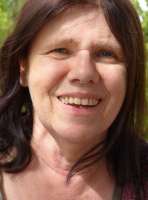
Marine Carrin, anthropologist, is emeritus Director of Research (CNRS) at the Centre d’Anthropologie Sociale, Toulouse. Her work focuses mainly on Santal ritual and symbolism (La Fleur et l’Os :symbolisme et rituel chez les Santal, Paris, EHESS 1986, and Le Parler des Dieux, le discours ritual santal entre l’oral et l’écrit, Société d’Ethnologie, Nanterre, in press) She has also worked extensively on therapeutic cults (Enfants de la Déesse: prêtrise et dévotion féminine au Bengal, CNRS editions 1997: Managing distress (ed.), Manohar, Delhi 1999). She has worked on Santal texts from the colonial period (From Fire Rain to Rebellion Reasserting Identity through Narratives, edited and translated by P. Andersen, M. Carrin and S. Soren, Manohar, Delhi 2011). These texts result from the activity of Scandinavian missionaries, explored in A Peripheral Encounter, Santals, Missionaries and their Changing Worlds (with H.Tambs-Lyche, Manohar 2008). She has theorized adivasi resistance and empowerment, co-editing Tribus et Basses Castes: Resistance et Autonomie dans la société indienne, Purusartha, with Ch. Jaffrelot, 2002), People of the Jangal: Reformulating Identities and Adaptations in Crisis (with H. Tambs-Lyche, 2008) and Voices from the Periphery: Subalternity and Empowerment (with L. Guzy, Routledge, Delhi, 2012). Her recent articles deal with youth in middle India as interpreters of ethnobiological knowledge. She is currently writing a book on indigenous knowledge, where she argues that the threads of Santal knowledge revolve around two dimensions, the emergence of a historical consciousness and the feeling of a shared identity related to language. She has been working the introduction of an original script among the Santals. Today Santal and Mundari intellectuals use indigeneity as an argument to bring back the past in the present, to claim political change, and reframe their cultural heritage to contradict the bias in post-colonial historiography. She has co-edited with G. Toffin and Pralay Kanungo, The Politics of Ethnicity in India, Nepal and China (Delhi, Primus, in press).
Contact: marinecarrin hotmail.fr
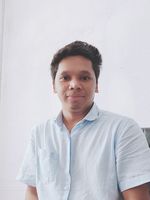
Aswino Gomango is PhD scholar at Indraprastha Institute of Information Technology, Delhi, and Assistant Professor in Sociology at Maa Manikeshwari University, Odisha, India. Previously, he obtained his Masters in Sociology and Social Anthropology from Tata Institute of Social Sciences, Guwahati, Assam.
For his doctoral thesis he is working among the Saora tribe of South Odisha. The aim of the research is to unpack the socio-cultural transformation ushered through the inroads of Christianity among the tribe. He is particularly interested in investigating the nexus of ‘Christian modernity’ and the indigenous economic practices- such as Jhum cultivation and the idea of commons, and the question of identity by looking at the ways how the community tries to negotiate, construct, and reconstruct to what it means to be Saora in the contemporary times. He, being an ‘insider’ to the research, aims to provide a reflexive account of the changing idea of religion, economy, and identity by tracing the socio-political and historical background of Saora’s conversion to Christianity combined with an ethnographic method of research. The project also looks into the interventions of the State and Faith-Based Organisations and how they lay out distinct, and often contradictory vision of future, and development for the tribe.
Currently working on a Book Chapter: Christian Modernity and Changing Identity of Saora Tribe in Odisha (Cambridge University Press).
Contact: aswinog iiitd.ac.in

Professor Chris Gregory is an economic anthropologist whose research brings together the disciplines of economics and anthropology. He has carried out extensive ethnographic fieldwork in India, Fiji and PNG on the relationship between kinship, economy and religion. Prior to his appointment as a lecturer in anthropology at ANU in 1984, he held research fellowships at Clare Hall Cambridge and the London School of Economics. He was Professor of Political and Economic Anthropology at the University of Manchester from 2008 to 2015 and is now Emeritus Professor in Anthropology at ANU.
Following his doctoral work on the PNG economy in the 1970s, the central focus of Gregory’s research shifted to India in 1982 when he began postdoctoral fieldwork on the rural marketing system of the Indigenous peoples of the north Bastar Plateau. Following an initial period of research of 13 months, he has returned for shorter period of research some 15 times over the past 37 years. This long-term fieldwork in has enabled him locate his studies of the local rice economy in its broader social and cultural context and to observe at first hand the profound changes the society has undergone as the state adopted its liberalisation policies. He has also been able to make an in-depth study of the rich cultural conceptions of wealth that inform economic and ritual behaviour of the indigenous people of this area whose rice economy presents a striking contrast to the root-crop economy of Melanesia. A four-year residence in Fiji over the period 2008 to 2012 gave Gregory the chance to bring together to his two areas of regional expertise and to study the problem of how the two radically different cultures have been able to live harmoniously as well as in conflict.
Contact: chris.gregory anu.edu.au
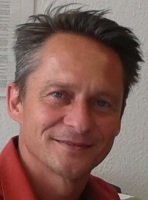
Roland Hardenberg is Professor and Head of Department of Social and Cultural Anthropology at the Goethe University of Frankfurt, Germany. He is also the Director of the Frobenius-Institute for Research in Social and Cultural Anthropology based in Frankfurt. He studied in Muenster, Oxford and Berlin and received his PhD from the Free University of Berlin with a thesis dealing with the renewal of the deities of the Jagannatha temple in the Hindu pilgrimage town of Puri. His post-doctoral thesis is based on another long-term fieldwork among the Dongria Kond of Orissa/India. This thesis was accepted as post-doctoral state degree (‘habitilation’) by the University of Muenster, Germany. In recent years he has conducted fieldwork in post-socialist Kyrgyzstan, focussing his research on funeral sites and practices. From 2013 to 2017 he was Deputy Speaker of the Collaborative Research Center (SFB 1070) on “Resource Cultures” sponsored by the German Research Council. His books include “The Renewal of Jagannatha. Ritual and Society in Orissa” (Manak Publisher 2011) and “Children of the Earth Goddess: Society, Sacrifice and Marriage in the Highlands of Orissa” (2018). He co-edited “The Anthropology of Values” (Pearson 2010) and “ResourceCultures. Sociocultural Dynamics and the Use of Resources – Theories, Methods, Perspectives” (2017). Together with Holger Jebens he is also the co-editor of “Paideuma: Journal of Cultural Anthropology”.
Contact: hardenberg em.uni-frankfurt.de

Frank Heidemann is professor for social and cultural anthropology at the University of Munich since 1997. For his doctoral thesis on Indo-Sri Lankan Labour Migration and the Repatriation of up-country Tamils from Sri Lanka he spent two years in Tamil Nadu conducting research in archives and in villages. After working with these up-rooted landless labourers he focussed his post-doctoral research on the Nilgiri region. His habilitation was on the religious and political system of the Badaga, the farming community in this region. Later he worked on the Andaman Islands and since 2017 he is conducting fieldwork in The Maldives on societal changes in the last 50 years. His fields of interest include the anthropology of religion, politics, migration, aesthetics as well as history and theory of anthropology. Among his books: Kanganies in Sri Lanka and Malaysia. Tamil Recruiter-cum-Foremen in the nineteenth and twentieth century (Anacon 1992); Akka Bakka – Religion, Politik und duale Souveränität der Badaga in den Nilgiri Süd-Indiens (Münster Lit 2006); Ethnologie. Eine Einführung (Vandehoek & Ruprecht 2019). In 2013 he co-edited The Modern Anthropology of India (Routledge) with Peter Berger.
Contact: Frank.Heidemann lmu.de
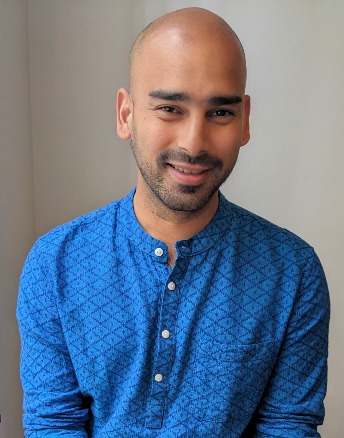
Aditya Kiran Kakati is a Visiting Scholar, University of Amsterdam (UvA) and an Affiliate Research Fellow, the International Institute for Asian Studies (IIAS) and at The Highland Institute, Kohima, Nagaland. Aditya works as an Associate Editor for The Highlander Journal, which seeks to promote conversations on global highlands to push the boundaries of traditional area studies. His postdoctoral project at UvA and SOAS was titled Blind Spots and Blank Spaces: borderworlds and frontiers at large (1944-1962), which asked how certain places become ‘remote’ despite being part of events with global repercussions like the Second World War (WWII) and decolonization. It examined the relationships between violence, development, infrastructure, and state-making to investigate how ‘remoteness’ is historically produced at the margins of emergent nation-states, which have created shadow zones of armed violence and illicit economies. His PhD dissertation was titled Living on the Edge: How encounters with global war (WWII) re-made the Indo-Burma frontiers into bordered-worlds, which is under revision as a book manuscript.
Aditya's ethnographic project, 'Eating Ethnic Enclaves ', examined the emergence of 'ethnic' cuisine in India due to minority community migrations from the Eastern Himalayan borderlands, a historically conflict-ridden area, has reshaped our understanding of 'tribal' identities in consumer spaces. Aditya's publications continue to engage with the contemporary social history and politics of tribal citizenship, using media such as ethnographic poetry and podcasts to publicly engage with the contemporary politics of India’s borderland and tribal communities. He is currently co-editing a volume to republish a rare book manuscript titled, 'Visnuite Myths and Legends in Folklore Setting' by Banikanta Kakati, using family archives supplemented by scholarly commentaries. This endeavour seeks to make previously unavailable work on Comparative Religion accessible to a broader public audience, contributing to the history and anthropology of religion, and contemporary citizenship debates in India.
Aditya hails from Assam in India. Aditya has previously visited Europaeum-Oxford University (2015), Princeton University (2016-2017), the Institute of Human Sciences (IWM), Vienna (2018) and the Fondation Maison des sciences de l'homme (FMSH), Paris (2023) as a resident scholar. Aditya will teach at the Faculty of Religion, Culture and Society in Groningen from September 2024-March 2025.
Contact email: aditya.kakati iheid.ch
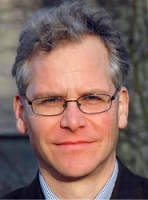
Erik de Maaker (PhD, Leiden University 2006) is an Associate Professor at the Institute for Cultural Anthropology and Development Sociology of Leiden University in the Netherlands. He is working on questions relating to the appreciation and creation of heritage, environment and sustainability, religion and ontology, as well as changing notion of relatedness and belonging. Methodologically, the material, performative and spatial dimensions of social interaction across distinct scales are central to his research. This includes the reinterpretation and reappreciation of ‘traditional’ cultural ideas and practices (‘heritage’) and their growing importance in terms of ethnicity and indigeneity. His current research focuses on people’s relatedness to environment, and how that is embedded in acts of claim making involving humans and nonhumans. Most of his research focuses on highland South and Southeast Asia. Researching the peripheries of post-colonial states has also drawn him to the growing importance of Asia’s borders, and he is one of the founders of the Asian Borderlands Research Network. He is author of the monograph Reworking Culture: Relatedness, Rites, and Resources in Garo Hills, North-East India (OUP, 2022) and co-editor of Environmental Humanities in the New Himalayas: Symbiotic Indigeneity, Commoning, Sustainability (Routledge 2021); Audiovisual and Digital Ethnography: A Practical and Theoretical Guide (Routledge 2021) and Media, Indigeneity and Nation in South Asia (Routledge 2019). He is an author prolifically published in journals such as Asian Ethnography, South Asia, Visual Anthropology and the Journal of Borderland Studies, and he is also an award-winning visual anthropologist. He is a track leader of the Heritage and Identity track of the Leiden-Delft-Erasmus Centre for Global Heritage and Development. For an overview of publications and films see: http://leidenuniv.academia.edu/ErikdeMaaker.
Contact: emaaker gmail.com
Thanuja Mummidi

Nicolas Prévôt is a Lecturer in Anthropology/Ethnomusicology in the anthropology department at the Univerisyt of Paris Nanterre. He is a member of the Centre de Recherche en Ethnomusicologie (CREM-LESC, CNRS). Since 2000, he has regularly conducted fieldwork among the Halbi-speaking indigenous people of Bastar (South Chhattisgarh). His research initially focused on the structural links between the local pantheon and the musical repertoire dedicated to it during possession rituals. While focusing on the social status, role and power of Ganda musicians, he also looked at their musical interactions with local castes and tribes (a majority of whom are Gond) and with the invisible world made up of gods and ancestors. Based on local conceptions of sound, spirits and spirit, he has showed how music and alcohol play complementary but separate roles in these interactions with entities, so that drunkenness and possession are comparable processes. More recently, he also analysed the use of tribal stereotypes in the current folklorization of Adivasi culture through government-promoted dance competitions.
Contact : nprevot parisnanterre.fr
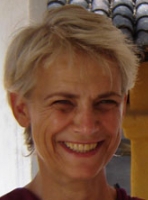
Eva Reichel Eva Reichel's ongoing anthropological research focusses on the tribal societies of middle India, their value ideas as contrasting with those of Indian mainstream caste society, their oral history, and their secular and ritual everyday lives within and away from contemporary India. She is predominantly interested in the Ho, a tribal community that has settled mainly on the Chota Nagpur Plateau in the Indian union states of Jharkhand and Odisha. In the course of almost a decade she has been staying with them time and again and done fieldwork there only recently. Right now she is working on her Ph.D. thesis and tries to make sense of the data that she collected in participant observation among the Ho in Mayurbhanj/ Odisha and in the Chaibasa area of West Singhbhum/ Jharkhand. The following domains are those that she came to realize as constitutive of the Ho-ness and therefore they became her main areas of interest: kinship, personhood, rituals, land ownership and cultivation, conviviality, patron/clients relationships and Ho concepts of children and childhood.
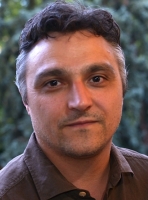
Raphael Rousseleau is Professor in Social Anthropology at the Religion, Culture and Modernity Institute (Faculty of Theology and Religious Studies, FTSR), in Lausanne University (Switzerland) and associate member of the Centre for South Asian Studies (CEIAS) at the EHESS-CNRS, France. After a post-doctoral research project on the theory and practice of adivasi art (see Gradhiva 2009; and other publications in press), he worked for a global ERC Advanced Grant Research Project on the implementations of Indigenous Rights (SOGIP, directed by I. Bellier). In his work more generally he insists on the interdependency of religious and political aspects of life. In the past, he worked on the perception/construction of the ‘tribals’ as a category, and then adivasi or ‘aboriginals’, in colonial reports and independent India. His PhD thesis (Les créatures de Yama. Ethnohistoire d’une ‘tribu’ de l’Inde (Orissa), 2008) proposed also an ethno-historical reconstruction of the pre-colonial relations of such groups with the local society as well as the former Indian little kingdoms, particularly through politico-ritual ceremonies. Such works remain at the basis of his current projects dealing with contemporary adivasi elite discourses on their own identity and ‘traditions’, the aesthetic aspect of local cults, and the practical relations of the same social groups with their local environment.
Contact: r_rousseleau hotmail.com
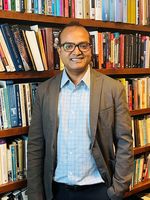
Sarbeswar Sahoo is Professor of Sociology in the Department of Humanities and Social Sciences, Indian Institute of Technology Delhi. He was Fulbright-Nehru Fellow at Emory University (USA), NWO Visiting Fellow (Institute of Indian Studies, RUG, NL), Alexander von Humboldt Fellow at the University of Erfurt (Germany) and Charles Wallace Fellow at Queen's University Belfast (UK). He received his Ph.D from the National University of Singapore. Sahoo's research is based on the Adivasis of India. Specifically, his interests include: Sociology/Anthropology of Christianity, Neo-liberalism, and the State-Civil Society Relations. He is the author of Pentecostalism and Politics of Conversion in India (Cambridge University Press, 2018) and Civil Society and Democratization in India: Institutions, Ideologies and Interests (Routledge, 2013). With Dr. Peter Berger at RUG, Sahoo completed a Gratama Foundation (NL) funded research project, which partially resulted in the co-edited volume Godroads: Modalities of Conversion in India (with Peter Berger, Cambridge University Press, 2020). Sahoo is also the co-editor of Civil Society and Citizenship in India and Bangladesh (with Paul Chaney, Bloomsbury 2021).
Contact: sarbeswar hss.iitd.ac.in

Uwe Skoda
, Ph.D. is Associate Professor, South Asian Studies, at the Department of Culture and Society, Aarhus University, Denmark. Currently, he is working on transformations of kingship in a former princely state combining anthropological approaches with historical perspectives and a distinct regional focus on Odisha and Central-Eastern India. The project includes the relations between former rulers and Adivasi communities in the area. Starting from royal archives his research interests have increasingly shifted to photography and visual culture more generally, while his other research foci include political anthropology, specifically Indian domestic politics and Hindu-nationalism, as well as social organisation and kinship. He recently edited “Navigating Social Exclusion and Inclusion in Contemporary India and beyond” (2013, London: Anthem Press - edited together with Kenneth Bo Nielsen and Marianne Qvortrup Fibiger), and “Chronicles of the Royal Family of Bonai (Odisha)” (2013, Delhi: Manohar - co-edited with Rashmi Pramanik).
Contact: ostus hum.au.dk

Alpa Shah is an Associate Professor - Reader in the Department of Anthropology at the LSE. Her research and writing focuses on poor and marginalised people in India and Nepal. She explores the processes of inequality people get caught in and the various ways in which they try to subvert them. She has lived for several years as an anthropologist amidst the people she writes about. Her first book, In the Shadows of the State, was on the indigenous rights and politics of Adivasis in Jharkhand, India. Shah is currently writing a book on India’s Naxalite or Maoist movement, a more than forty-year-old insurgency trying to seize power of the state to create a communist society. She has presented some of this research on BBC Radio 4. Shah is also leading the Programme of Research on Inequality and Poverty, funded by major research grants from the ESRC and the EU. She read Geography at Cambridge, trained in Anthropology at the LSE, and taught anthropology at Goldsmiths until 2013 when she returned to the LSE.
Contact: A.M.Shah lse.ac.uk
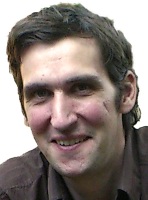
Christian Strümpell is Research Associate at the Max Weber Forum for South Asian Studies, Delhi, and affiliated to the Institute of Social and Cultural Anthropology, Universität Hamburg. He has conducted extensive ethnographic research on working class cultures in different industries in Odisha between 2000 and 2014. Drawing on debates in the anthropology of caste and class, exchange and kinship, and on social histories of class formation and politics, he explores how Odia and Telugu workers of a hydro-electric powerplant in southern Odisha and Adivasi workers of a large public-sector steel plant in north Odisha. He has undertaken further extensive ethnographic research on metal workers as well as export garment workers in Dhaka, Bangladesh. His publications include single-authored and co-edited books with LIT Verlag, Cambridge University Press, and De Gruyter, chapters to edited volumes, several articles in journals such as Contributions to Indian Sociology, Citizenship Studies and Modern Asian Studies as well as blogs in TRAFO – Blog for Transregional Research and in Workplaces: Pasts and Presents.
Contact: Struempell mwsindia.org
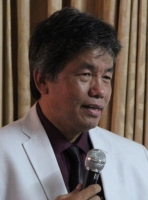
Tanka B. Subba is currently the Vice-Chancellor of Sikkim University, a central university established by an Act of Indian Parliament in 2007. Prior to accepting the present responsibility he was a Professor of Anthropology at North-Eastern Hill University & Honorary Director of the Indian Council of Social Science Research in Shillong. At Shillong he edited two peer reviewed journals called The NEHU Journal and Man and Society. His also edited a textbook titled North-East India: A Handbook of Anthropology and another volume (edited with Nicolas Laine) titled Nature, Environment and Society, which were both published by Orient Blackswan (formerly Orient Longman) in 2012. He has also edited two books on Indian Nepalis and has recently submitted an edited ms titled Nepali/Gorkha Diaspora in Globalised Era for consideration of publication. Three of his recent articles, coauthored with Jelle Wouters, relate to politics of ethnography in Northeast India, restudy of Rampura ('The Remembered Village' of M.N. Srinivas), and the Indian face. He also wrote two autobiographical articles titled "Living the Nepali diaspora in India" and "From caste to tribe" of which the latter was written after his community became a scheduled tribe in Sikkim and West Bengal states of India in 2003. This article is included in the OUP Reader on Tribes in India (in press). He has also authored books on agrarian relations in the hills of Darjeeling, dynamics of Nepali society, Tibetan refugees, Gorkhaland movement, and politics of culture.
Contact: tbsubba.shg gmail.com

Nandini Tank is a Doctoral Researcher at National Institute of Technology, Rourkela, Odisha, India where she was fortunate to be funded by the Jawaharlal Nehru Memorial Fund. She is also a freelance journalist for The Caravan, The Wire, and other media houses. Her research interests are grounded in her deep engagement with literature on the epistemology of Adivasi religion and political mobilization. She is particularly drawn to questions related to Adivasi knowledge for climate change, Sarna religion, human-environmental nexus, and the gap between public policies and ground realities. While her theoretical work is inspired by cultural citizenship, eco-nationalism, and indigenous philosophy, she works empirically to gather, analyze, and integrate both social and biophysical data (land ownership, demographic data, religious population). Over half a decade of working ethnographically to analyze various ways to conserve indigenous knowledge, local practices, and government policies, she was able to develop a more holistic understanding of climate change's interconnected effects. For example, a government policy might predict increased income by constructing industries on the indigenous land, while an environmental model could assess the disaster created by deforestation leading to flood or vulnerability of different species.
Her PhD thesis focused on an ethnographic and netnographic (ethnography conducted on the internet) inquiry amongst Adivasi, the Indigenous people of India. Her thesis titled “Abua Dishom, Abua Raaj: Tribal Youth, Cultural Citizenship, and Collective Identity Assertion on Digital Media in Jharkhand'' navigates the various ways of media communication by tribal youth from Munda, Santhal, and Kurukh community in Jharkhand to assert their ethnic, religious, and socio-political identity. She found three major arenas in which the Adivasi community has been negotiating their citizenship in the country: Political, Religious, and Cultural. Through this research, she traced how Adiavsi people are demanding a separate religious column namely "Sarna Religion" and "Tribal Column" in the Census of India. Her findings suggest that the underlying motive of this mobilization is to establish their religious identity separate from both Hinduism and Christianity and to resist the encroachment of tribal land by campaigning for tribal control over state resources by strengthening the constitutional provisions.
She has collaborated with research agencies like Indian Council of Social Science Research (New Delhi), Centre for Advanced Study (Oslo), European Association of South Asian Studies, Jawaharlal Nehru Memorial Fund (New Delhi) and published academic and news articles on Adivasi issues. Nandini has been certified by Rosa-Luxemburg-Stiftung for ‘Public Policy for Marginalized Social Groups’. She has also been invited for guest lectures at National Law School Bangalore, Insurgent Knowledges, Adivasi Lives Matters, and All India Radio, India. Nandini has received European Conference for South Asian Studies Early Career Grant 2023, Centre for Advanced Study Scholarship 2023, London School of Economics Travel Grant 2023, and Jawaharlal Nehru Memorial Fund 2021.
Contact: nandinitank15 gmail.com
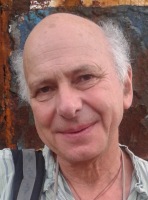
Piers Vitebsky studied ancient and modern languages before becoming an anthropologist studying religion, psychology and ecology among indigenous peoples. He has lived for several years since the 1970s among the Austroasiatic-speaking “tribal” Sora (Saora, Savara) of Odisha (Orissa). His first monograph was Dialogues with the dead: the discussion of mortality among the Sora of eastern India (Cambridge and Delhi, 1993). A further book, Loving and forgetting: changing forms of loss and redemption in Tribal India (Chicago, in preparation) will explore the tensions between the shamanism of older Sora and the evangelical Christianity or fundamentalist Hinduism of their children. With the Sora elder Monosi Raika, he has written a volume of photographs and texts for young Sora (Indigenous knowledge: a handbook of Sora culture, Visakhapatnam 2011), the only work in Sora which is about their own families rather than about Jesus or Rama. Future plans include a dictionary of Sora idiom and poetics. He is also interested in the comparative study of minority peoples in large multi-ethnic states. Since 1986 he has studied nomadic reindeer herders in the Russian Arctic and his book Reindeer people: living with animals and spirits in Siberia (London and Boston 2005) won the Kiriyama Prize for Non-Fiction. He has also been involved in making documentary films.
Contact: pv100 cam.ac.uk
| Last modified: | 03 December 2024 1.56 p.m. |
